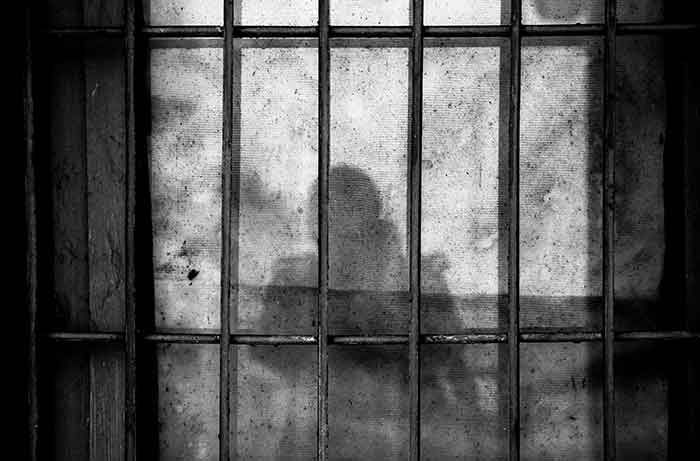
If you know Dr. Kafeel Khan then chances are, you have read the letter that he allegedly wrote to his family from Mathura district jail where he is currently locked up. He was slapped with the National Security Act after reportedly making an inciting speech during anti-CAA protests at the Aligarh Muslim University. Further, a case was registered against him for promoting enmity between different religions. Any concerned citizen would question how standing up for one’s citizenship rights is the same as promoting enmity between the two religions. This leads us to another question that is, why have the Rashtriya Swayamsevak Sangh and Hindu Mahasabha been given the green flag to function freely across the country? They literally fill up their vote banks by benefitting off of this divide between the majority and minority, the Hindu and the Musalmaan. However, this article isn’t about them. It is not about Dr. Kafeel Khan either. It is about his letter which reached his family on July 1st and the deplorable inhumane conditions he described of the Mathura district jail.
Khan, in his letter, describes in detail his routine and the daily struggle of living in utter filth that is Mathura Jail. He says, “The entire barrack seems like a fish market infused with all kinds of smells including those of someone coughing, sneezing, farting, urinating or sweating. Some people snore, some fight, some scratch themselves. Usually, the entire night is spent sitting, waiting for the morning.” Describing the condition of the toilet, he wrote that finally when his turn to use the facility comes up, it is unbearable to stand the stench with, flies and mosquitoes hovering around. Sometimes, he ends up puking in the toilet. Since Covid-19 has hit the world, everybody is advised to wear a mask, wash their hands thoroughly, and practice social distancing. However, practicing social distancing is geographically impossible in the jail cell. “In a jail cell with the capacity of 534 inmates, 1600 inmates are locked up….with just one attached toilet and 125-150 inmates, the smell of their sweat and urine mixed, with unbearable heat due to electricity cuts, makes life hell over here. A living hell indeed.” This condition of the prison cell is no surprise to the government. The UP government even ordered the release of 11,000 convicted and under-trial prisoners in order to ease the crowd in the prison, in view of the pandemic. Even after that, the prison cell still remains overcrowded.
The criminal justice system of India, despite many attempts, is still filled with loopholes and lacks proper functioning. Many are jailed for years under wrongful arrests and detentions with their only hope being the courts of India. However, a judgment can take years, even decades to pass from the courts. As of March 2016, more than three crore cases are pending in various courts and this number keeps on increasing. Some end up spending their whole life in a jail cell for no crime of their own, with no proper compensation. Even if compensated, what about all the lost time? For the released inmates, the Covid-19 pandemic was a blessing. It was their freedom from “a living hell“.
From all that we have heard or know about the prison conditions in India, it is clear that prisons are not a place for rehabilitation which they should be. The purpose of sending a person to prison should not be to punish them rather, it should provide them an environment where they can bring positive changes to their attitude.
Oftentimes, it seems like we have moved backward in time. During the pre-Mughal and the Mughal period in India, prisons were a place for punishment and torture. The British reforms radically changed this system. The Prison Act of 1984 brought a systemic change to the torturous prison practices that were in place then. The act amended the prison laws and also defined the roles, rights, and rules of such a place. Along with providing better administration, the emphasis was also put on reformation and rehabilitation of the inmates into the society. It also prohibited overcrowding of prison cells. Hence, the Indian Prison System was radicalized and reformed for the better. But, has it really improved?
In a report published by the Institute of Criminal Policy Research, India’s prison population, from 2000 to 2018 has increased by a staggering 71%. The unhygienic conditions and rampant overcrowding, improper nutrition, lack of proper living condition coupled with deteriorating physical and mental health has turned prisons into torture cells rather than rehabilitation centres. In 2018, there were 1845 deaths in prisons. Some manage to survive these unbearable conditions while others die custodial deaths (For example, Jayaraj and Fenix) and the rest choose to end their lives on their own.
In 2018, The Supreme Court of India recognized that the overcrowding of prisons is a violation of human rights. Moreover, in February 2020 the apex court recommended several prison reforms such as modern cooking facilities, canteens, trial through video conferencing and a free phone call per day to family. The court also acknowledged the unhygienic condition of the prison cells. This step may seem very insignificant considering the advances India has made since the departure of the British but this ruling has brought much-needed attention to the forgotten child of the Swacch Bharat Abhiyaan (2014). It is time that this ambitious campaign takes notice of the unsanitary conditions of the Indian Prison cells as well.
As I write this, I think of the doctor and his fellow inmates, breathing the “unbearable stench” and passing their sentence in jail, one day at a time. As a concerned Indian citizen, I say that It is time to convert the prison cells into what they should be i.e., the rehabilitation centres that they were always meant to be. If such a huge population of India is living in the prison cells, then it is imperative that the infrastructure and the conditions are made inhabitable.
Ramsha Khan is an undergraduate student of English from Jamia Millia Islamia
SIGN UP FOR COUNTERCURRENTS DAILY NEWSLETTER















































